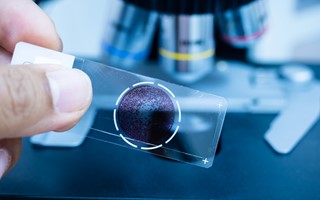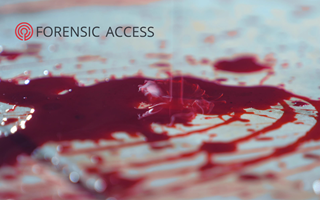News June 20, 2022
It is a common misconception within the scientific community that forensic pathologists are limited to only dealing with murders. However, forensic pathologists are medically qualified doctors, they have just chosen to move away from treating the living.
Dr Stuart Hamilton, a Home Office-registered forensic pathologist who works with Forensic Access in providing forensic pathology services, has not treated a living patient for over twenty years. His line of work involves the interpretation of injuries, their pattern and the injury causation – but not how to fix them. Looking at the injuries, informing about what they are and providing an interpretation of how they may have been sustained is the focus of his assessment. He is also able to comment on the effects of injuries and what the effects can go on to cause.
A barrister once told Stuart Hamilton that “a murder is only a grievous bodily harm (GBH) with a death.” To some extent this is true, Dr Hamilton would argue. The element of murder includes the intent to cause serious harm that results in death. The reality is that virtually every case a forensic pathologist deals with has been a GBH at some point, which has then led to murder. The injuries are sustained by people who are living, and therefore forensic pathologists are capable of interpreting the injuries in the living as well as the dead.
Certain patterns of bruising, for example, can indicate that the injury was most likely caused by a stamp mark or a footwear mark. A forensic pathologist would instruct the investigating team to find a piece of footwear that matches the mark, or ask the defence team to make sure they understand how strong the evidence is that relates the piece of footwear to the mark or to their client.
A line of expertise that forensic pathologists have that many doctors do not is that they are trained in the rules of expert evidence and the role of the expert in court. Another important factor to note is that forensic pathologists are not forensic medical examiners (FMEs). That is an entirely different role which some forensic pathologists have chosen to qualify in, but strictly speaking it is not what a forensic pathologist is required to do. As such, they are not equipped to assess whether a defendant is fit to detain nor can they carry out mental health assessments. They are however highly skilled in interpreting injuries both in the living and dead.
Clinical medical evidence is extremely valuable if you are dealing with a case where the tests that have been undertaken are up for question or if the treatment that has been chosen is up for question. In these cases an expert pathologist cannot help and you need an expert in that field to comment on your case. By way of example, it is impossible to undertake clotting tests on a deceased individual. However, if you have results from a living patient, a haemotologist may be very useful when assessing whether there is a clotting problem and indeed what the cause of that problem was.
If a patient has had a certain operation and they have a complication post-operation with long-term consequences, a clinician is the correct person to ask as to whether the operation was appropriate and whether the pre-op assessment of the patient was performed correctly. A clinician will be able to answer those questions, whereas a forensic pathologist cannot.
As Stuart Hamilton puts it, “you would not want me to take out your appendix if you want to live through it. If you want your appendix removed, ask a surgeon. If you want to know about the specific dynamics of how a stabbing occurs, ask a forensic pathologist. If you want to know whether a stab wound could have been treated, whether it was treated too slowly or treated in the right way, ask a trauma surgeon.
But if you want to know about how exactly it occurred, your forensic pathologist is the person to answer that and answer it very effectively.”
Forensic Pathology Expertise
Forensic Access works with some of the UK’s most experienced Home Office Pathologists, as well as offering the complete range of experts for more specialist cases.
To find out more about the forensic services that we offer, contact us via Tel: 01235 774870 to speak with a member of our team or fill-in our online contact form.


